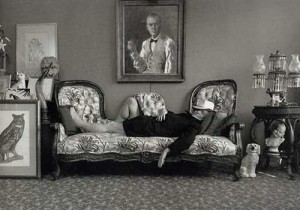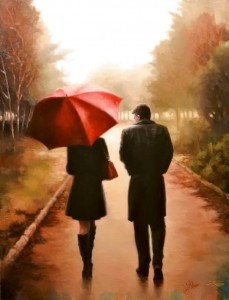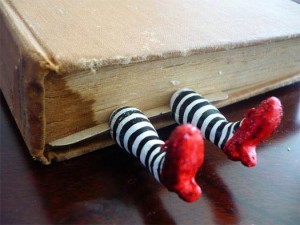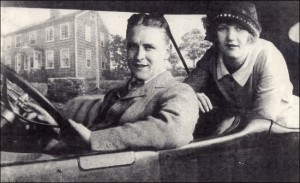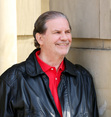Michael Croucher's Blog, page 2
October 6, 2013
The Quirky Writing Places of Famous Fiction Writers
I read recently that Truman Capote would supposedly write supine, with a glass of sherry in one hand and a pencil in another. The late writer explained: “I am a completely horizontal author. I can’t think unless I’m lying down, either in bed or stretched on a couch and with a cigarette and coffee handy. I’ve got to be puffing and sipping. As the afternoon wears on, I shift from coffee to mint tea to sherry to martinis.”
This made me think about my own way of writing.
In the era of laptop computers and IPad s, most writers have the luxury of writing anywhere they chose; libraries, coffee shops, park benches; well, you get it, just about anywhere. But many of us are still creatures of habit and generally tend to have our favorite place to write.
My own word output is usually less than a thousand per day, and I tend to to spend no more than three hours early in the day to get it done. Routine and familiarity are what I need to get me going, so sometime before seven a.m. I get into my favorite recliner with my feet up and my laptop supported on a pad across my lap. I have three small tables around the laptop to hold my notebooks and research files. By nine, I’ve written what I’m going to write and I get on with my day.
When I’m away, I try to create (not always successfully) a similar workplace. This works for me now, because at this stage of my life, writing comprises a fairly small percentage of my day. I’m looking forward to the day when that percentage increases. Perhaps then, I’ll work in a setting that encourages more productivity.
I did a little search on the writing places of famous authors.
This interesting piece by Celia Blue Johnson is currently in the October 2013 issue of Writer’s Digest.
Many great writers have found creative comfort while sitting at a desk. (Charles Dickens was so attached to his that he had its contents shipped to his vacation home.) But a surprising number of literary luminaries have ventured beyond the traditional perch to create their ideal writing spots, whether that meant stepping into a bathtub or trekking into the wilderness. Here are 13 of the most memorable.
• Every weekday, Wallace Stevens walked 2.5 miles to the offices of the Hartford Accident and Indemnity Co., where he served as vice president. Between his doorstep and the office door, Stevens composed poetry. He observed, “I write best when I can concentrate, and do that best while walking.”
• A 90-minute commute is a painfully tedious necessity for many people, but for John le Carré it was an uninterrupted opportunity to write. As an MI5 officer, le Carré spent his long train rides from Buckinghamshire to London penning his debut novel, Call for the Dead. Le Carré quipped, “The line has since been electrified, which is a great loss to literature.”
• Sir Walter Scott crafted “Marmion,” his bestselling epic poem, on horseback, in the undulating hills near Edinburgh, Scotland. Though one might assume a leisurely pace is necessary for creative concentration atop a horse, Scott preferred to contemplate the lines of the poem at a faster clip. “I had many a grand gallop among these braes when I was thinking of ‘Marmion’,” he recalled.
• Gertrude Stein discovered that the driver’s seat of her Model T Ford was a perfect place to write. Shopping expeditions around Paris were particularly productive for the writer. While her partner, Alice B. Toklas, ran errands, Stein would stay in their parked car and write.
• D.H. Lawrence preferred to write outdoors, beneath the shade of a tree. He found a trunk to lean against wherever he went, from pine trees in New Mexico to great firs in Germany’s Black Forest. Discussing his predilection, Lawrence noted, “The trees are like living company.”
• In 1917, Virginia Woolf and her husband, Leonard, started a small publishing company in their basement. Despite the new venture, Woolf did not give up writing. Every morning she walked down to the basement, and strode past the printing press and into a storage room with a cozy old armchair. Her pen would fly while the press whirred in the next room.
• Agatha Christie had two important demands for the renovation of her mansion. She informed her architect, “I want a big bath, and I need a ledge because I like to eat apples.” Christie constructed her plots in a large Victorian tub, one bite at a time.
• Instead of hopping in an actual tub, every morning Benjamin Franklin took what he called “tonic baths” in the open air of his bedroom-he’d shed his clothes and work naked, for up to an hour …
September 30, 2013
Five Things a Novelist Can Learn From a Screenwriter
I think the best novelists are pure storytellers. They drive their readers forward with plot, not details. I keep five tips from a famous screenwriter to novelists taped in the front of my notebook as a constant reminder to stick to the story.
David Magee found himself learning to be a screenwriter, yes, but more important, he found himself learning to become a storyteller. And it turns out there’s a lot the screenwriter who got his start reading stories—and stripping them to their essence—can give back to novelists. Here are the five tips from David Magee
1. Your novel is probably too long.
After first abridging books and later adapting them for screen, Magee has come to the conclusion that most books could be “wonderful” at three-quarters their published length.
“There are craftsman where every word on the page counts,” Magee admits. “But a lot of books that I read, I see these setting descriptions going on forever and not contributing to a greater understanding of the characters or the story.”
Magee learned to be “ruthless” with his own writing by first being a ruthless abridger. So if you’re having trouble killing your own darlings, you might do well to head to your local used bookstore and buy a thick, beat-up paperback. Then buy a red pen.
2. A story can be built in scenes.
Some novelists start on Page 1 and knock out a daily word count until they type “The End.” But if that doesn’t work for you, don’t worry. It doesn’t work for Magee, either. He never starts on Page 1 of a screenplay. He begins with the basic theme and overall journey—what screenwriters call the controlling idea—and lets it come together, scene by scene—and not necessarily in order.
He thinks: “What am I trying to write about? Am I trying to write about how lonely you can feel even among friends? Am I trying to write about the need to grow up, which was the theme of Finding Neverland? Am I trying to write about how stories help us get through life, which is Life of Pi? And then I try to organize my storytelling around the development of that theme or idea, finding ways to tie the main character and other characters to that idea.
“You have some ideas for scenes and you jot them down as quickly as possible, and start to imagine where they might fall into that. And then gradually you start piecing together a collage of those things either on cards or with colored pencils, in a notebook or on a piece of paper, and you start figuring out what happens when.”
3. Tension must drive every scene.
Once you’ve got your scenes, each one must count. If they don’t have tension and aren’t moving the story forward or revealing character, they have to go. Movie audiences know. So do fiction readers.
“In terms of keeping the story going, it’s a matter of never allowing the tension to completely go out of the scene,” Magee says. “A character wants something, and in the course of a sequence of scenes they try to get it. They either succeed or they fail but at the end of that, all is not resolved. Either they realize that was not what they ultimately needed, or it leads them to realize what they need next. They’re still in peril in some way.”
4. Plot and character are not enemies.
Some novelists shy away from—OK, despise—an emphasis on plot, focusing instead on character. For Magee, however, it’s not a matter of character vs. plot, but rather how character creates plot.
“Plot and character are two sides of the same coin. A character behaves the way they behave, and their behavior makes the plot. You learn about character through what they decide to do, and that creates the plot. So those two create the story. How do you do it? My analogy is always sleight of hand. A magician learns to focus an audience’s attention on what he wants them to enjoy and focus on, and he’s slipping in exposition underneath while they’re not looking. Look at the shiny coin over here, but pay no attention to what I’m doing over here. But what I’m doing down here is setting up what’s going to happen later.”
5. You must bring dialogue to life.
In a screenplay, it’s essential that dialogue ring true—and a novel should aspire to just as high a standard. While it’s common advice to read your dialogue aloud, Magee takes it to the next level—he performs it, and doesn’t care who’s watching.
“I had a neighbor who made fun of me for walking around the backyard, waving my arms around and talking to myself, working out a scene,” he says. “I do that all the time.
“Because of the tradition I came from, and reading books on tape, I consider novels—just as much as screenplays, and just as much as plays—part of an oral tradition. I know there are writers whose work only lives on the page, or who are doing things that are not meant to be read aloud. That’s not the kind of writing that interests me. To me a really good book is something that can be told around a fireside.”
August 31, 2013
A New Golden Age for Books?
The world of reading, writing and distributing books is well along the path of a tumultuous upheaval. And readers can rejoice; the supply and sourcing of wonderful reading material has never been more robust. Quality control may have suffered slightly, but the craft of expressing through the written word is experiencing a rebirth, with scores of writers immersing themselves into the technologies of creation and distribution.
But of course, many readers are mourning the death of the book. They long for the feel, the weight, the look and the environment that physical books give to space. And so do many writers. But we’re not going back.
Readers and writers should celebrate the gain rather than mourn the loss. In actual fact, physical books will still hold a very special place in the world; they just won’t be as abundant.
Once again, one of my favorite commentators, Seth Godin, sums up the new publishing landscape and describes the future for those precious physical books.
*******
Books, those bound paper documents, are part of an ecosystem, one that was perfect, and one that is dying, quickly.
Ideas aren’t going away soon, and neither are words. But, as the ecosystem dies, not only will the prevailing corporate systems around the paper book whither, but many of the treasured elements of its consumption will disappear as well.
THE BOOKSTORE as we know it is doomed, because many of these establishments are going to go from making a little bit of money every day to losing a little bit. And it’s hard to sustain daily losses for long, particularly when you’re poorly capitalized, can’t use the store as a loss leader and see no hope down the road.
The death of the bookstore is being caused by the migration to ebooks (it won’t take all books to become ‘e’, just enough to tip the scale) as well as the superior alternative of purchase and selection of books online. If the function of a bookstore is to stock every book and sell it to you quickly and cheaply, the store has failed.
THE LIBRARY is limping, partly because many of them have succumbed to being a free alternative to Netflix or the boarded-up Blockbuster. As fewer people dive into a sea of printed books, libraries will have no choice but to stop stocking that sea with expensive items that few use.
THE TRADITIONAL PUBLISHER is culturally connected to the bookseller. That’s their customer, not you, the reader (ever tried to call customer service at a book publisher?). As the bookseller disappears, and as the open nature of the ebook platform rewards individuals and quick-moving smaller entities, many in traditional book publishing will find their particular skills no longer valued the way they used to be.
SINGLE TASKING is an anachronism. As soon as ebooks moved from the Kindle to the iPad, the magic of reading was threatened by the opportunity (“for just a second”) to check on email, Words with Friends or an incoming text message.
READING FOR PLEASURE was largely extinguished by four generations of not-very-good teaching philosophies. By treating a book as homework and a punishment, we’ve raised people to not look forward to reading. More than once, friends have said, “you should be really pleased, I even finished your new book.” My guess is that no one says that to Laurence Fishburne about his new movie. There’s no real ebook piracy problem because most people don’t think books are worth stealing.
THE BELOVED SHELF (or wall) of books is less well-thumbed and less respected than it was. We’re less likely to judge someone on their ownership and knowledge of books than at any time in the last five hundred years. And that shelf created juxtapositions and possibilities and prompted you when you needed prompting. Ten generations ago, only the rich and the learned owned books. Today, they’re free at the local recycling table.
THE PAVLOVIAN RESPONSE will fade. You go to a bookstore, a quiet, civilized, respected greenhouse of ideas. A person you connect with hands you a book, wraps it, charges you a surprisingly small amount of money and you go home, ready to curl up for five or six or thirty hours, to immerse yourself in a new world or a new set of ideas. And then you will take that volume, one that’s designed to last for a century with no technology necessary, and either share it with a friend or place it in just the right place on your wall. Your brain was wired to be taught to be open to these ideas, to be respectful of the volume itself, because all of the elements of the ecosystem, from the author who took a year to the editor who curated the book to the jacket designer and the printer and the store… they all aligned perfectly to create this method of consumption.
None of these changes, by themselves, are enough to kill a venerable information delivery and cultural touchstone like the book. But all of them together? I’m writing this on a train filled with educated, upper income suburban commuters of all genders and ethnicities (book buyers, until recently). I can see 40 people at a glance, and 34 are using electronic devices, two are asleep and exactly one person is reading a traditional book.
Yes, we’re entering a new golden age for books, one with more books and ebooks being written and read today than ever before. No, books won’t be completely eliminated, just as vinyl records are still around (a new vinyl store is opening in my little town). But please don’t hold your breath for any element of the treasured ecosystem to return in force.
Is it traitorous to my tribe to write these words? I’m not arguing that we should push the ecosystem out the door, but I am encouraging us to not spend too much time trying to save it. First, it’s a losing battle, but more important, we have bigger opportunities right in front of us.
Twenty years ago, I saw the web and wrote it off. I said it was a cheap imitation of Prodigy, but slower and with no business model. Partly, I just didn’t see. But a big part of me wanted Prodigy (my client) to succeed, along with a business model I understood. As a result of my arrogance, I missed the opportunity to take advantage of a brand new medium.
I fear that our cultural and corporate connections to books as a delivery system may blind us to the alternatives.
I’m not as bitter as I might be, as we’ve traded in our books for some fabulous alternatives mixed in with the time-wasters. But yes, after 500 years, after building not one but several industries around the creation, publication, distribution and storage of books, I’m pretty nostalgic.
I called this post, “An end” as opposed to “the end.” As always, we’ll reinvent. We still need ideas, and ideas need containers. We’ve developed more and more ways for those ideas to travel and to have impact, and now it’s up to us to figure out how to build an ecosystem around them.
July 31, 2013
Honesty in Fiction
I follow the blog of literary agent Rachelle Gardner and she posts some real gems. A recent article touched on one of the most understated fears of all writers; I can’t imagine that any writer has ever avoided this particular demon
It’s the fear of tackling the craft of writing with honesty. Yes, she’s also ttalking honesty in works of fiction. Here’s an excerpt from her post. Read on, and discover that she’s talking about truthful writing at the deepest and most powerful levels of all storytelling
I just finished reading an unusual memoir Walden on Wheels by Ken Llgunas, which is already one of my favorites for many reasons, the primary one being the author’s honesty. In the book, he takes the reader along as he ventures outside his comfort zone, violates societal norms, faces his own limits, stares down his demons and accomplishes some major personal victories. He shares his thinking all along the way, oftentimes a bit immature or selfish or unenlightened, and brings us with him as his perspectives mature and blossom. He lets us in, even as he knows he might be saying things that alienate us. He tells the truth, awkward and unpleasant as it sometimes is, and I came to admire his story for what it was: a journey. He didn’t have to be perfect all along the way; the point was that he learned and he grew and in essence, he came of age right there in front of our eyes.
We would not have the privilege of reading such powerful works without authors who are unafraid of telling the truth.
In your blogging, in your Twittering and Facebooking, in your novel-writing and your memoir-writing and your non-fiction writing… what if you were able to let go of your need to show the world only your best side? Your shiny, polished and edited side? What if you were to tell the truth about your humanness — those moments of selfishness and greed, those flashes of insecurity, the envy that overtakes you at odd moments? What if you were able to portray the world as it really is?
July 12, 2013
Thank You F. Scott Fitzgerald
It’s a great moment for any author when they open up their own published work for the first time. It doesn’t matter if its book number one or book twenty-one, it’s always a precious moment. You’re holding your baby, your own creation. You realize that those thousands of hours of plotting, researching, writing, re-writing, editing, reading and re-reading weren’t in vain. The proof of your creation coming alive is finally in your hand.
You savor its feel, weight, smell and look. Forgotten are those days of separation and anxiety when others were judging its worth, the trusted writers and editors whose eyes and pencils slashed at it, trimming away at its flesh, cutting the word count by many thousands. Forgotten are the rejection slips, they were merely bumps in the roadway to your validation as a writer.
Perhaps with your first book, you decide to enjoy it as a consumer, as an actual reader. You wait until the house is quiet and you seek out your favorite chair; the one where you’ve consumed hundreds of books by other writers. This is special. You prepare a coffee or maybe a cocktail and you settle in to experience your creation in the most personal and appreciative way. In this private bliss you begin to lovingly read your own work.
You are completely unaware that at some point in your reverie an evil and familiar menace will jump out of the page and stab your heart like a pitchfork. If the truth is known very few writers escape this torturous moment. Some have of course, but only because they themselves have exceptional editing skills or their book was vetted by a team so thorough that no glitch went unnoticed.
When it happens, no matter how trivial the error, as a new writer you are likely to come out of your chair in panic, and start searching for a way to stop the presses. How could this be? How could my baby have a flaw? Someone, somehow please fix it. Fix it now. You struggle for days, weeks, months or years. You feel exposed as a second rater. You worry that someone out there is reading your book, will come across its blemish or blemishes and toss it aside, and your story is left untold, abandoned or even relegated to a bin. I know this experience. It happened to me.
Well then, let’s all take heart. Let F. Scott Fitzgerald and The Great Gatsby come to our rescue.
Several months after I had this experience with my first book in print, I was watching a television documentary about rare books. Someone had submitted a rare first edition of The Great Gatsby to a panel of experts for validation. Many features of the book were looked at; everything from the dust jacket, the binding, typesetting, and paper were examined and verified.
Then they submitted the book to the final test. As with many published books, not every demon had been exorcised. The book was finally validated as a genuine first edition because a number of editing mistakes that were in the original were identical in the offered book.
As a good friend of mine used to remind me, the ideal anything is just like the horizon, as you walk towards it, it keeps moving away. So the ideal book, the ideal editing job will always be in our sights, but it will be rarely in our grasp; it’s another horizon.
I’ll always edit and re-edit and probably re-edit again before outsourcing the final edit. I’ll probably always come out of my chair, at least a bit when I find a glitch in my own published work. But I will no longer panic or worry about the reader, if my story is well told and carefully presented, a blemish here and there won’t kill it.
Thank you F. Scott Fitzgerald and thank you to the person who wanted their first edition of The Great Gatsby verified. You’ve taught me something that most publishers and editors will never admit; very few editing jobs are absolutely perfect.
June 16, 2013
Short Story – Boosters
His condominium was completely at odds with his public persona.
The neighborhood seemed right, plenty of expensive shops and fine restaurants within easy strolling distance. The building was right as well; nicely situated in a prestigious neighborhood, a doorman ever present in its elaborate and tasteful lobby.
But not the actual condo, once inside, it was hard to imagine a man like him ever setting foot in it. The heavy double front doors were hanging broken and askew, the effects of a twelve pound sledge hammer against the hardware and frame very evident. Several security chains that he had added lay twisted and cut on the Italian marble floor of his foyer.
A laptop sat on a round table in the kitchen. Beside the laptop, a bankers box lid was upside down and contained about two dozen credit cards, three cell phones that would normally have been discarded by the end of the day and a ring of keys to numerous ‘street addressed’ post office boxes. A powerful shredder sat on the floor, ready to eliminate the envelopes and any correspondence they’d once held and the credit cards after three day’s use.
The only chair at the table had a cashmere cardigan carelessly hung over its back. The kitchen counter was stacked with small elaborate boxes that contained watches, rings and other pieces of fine jewelry.
A Queen sized mattress lay on the floor of the living room surrounded by bigger boxes. Its sheets were creased and crumpled in a heap. There were two pillows. Apparently one of them had been hers until last week, the note she’d left him was still scrunched up beside it.
Except for the five appliances considered standard, the rest of the place was devoid of large furnishings. The only two appliances that showed any signs of use were the washer and dryer; they sat in a well sized laundry room that was tucked tastefully into an alcove off the front foyer. There was a small box of detergent and a half full box of fabric softening tissues sitting on a shelf. Stacked on the dryer lid, there were freshly cleaned socks and underwear. His dry-cleaned shirts and suits hung in plastic bags to the side of the washer.
A three piece bathroom off of the foyer contained all of his personal grooming items. This was where he readied himself for his afternoons and his evenings, not in the huge master bedroom or its luxurious en-suite; those had been put to other uses.
In the master bedroom there were dozens of paper shopping bags, still full of merchandise, and stacks of boxes filled with expensive shirts and sweaters. Over two hundred tie boxes were piled in one corner. The boxes were all high end as evidenced by some of the brand names; Hermes, Holt-Renfrew, and Robert Jones to name a few.
The master bathroom’s giant ‘whirlpool’ tub was dry and filled to the rim with boxes of various shapes, all containing expensive perfumes and colognes. Around the tub and crammed into every part of the room, more boxes; more shirts, sweaters and blouses. On the counter tops and in the sinks, more rings watches and bracelets.
Every other room in the apartment was fully utilized and crammed with the spoils of their favorite sideline; a sideline that created an inventory that would put several top shelf boutiques to shame.
He was the anchorman on a highly rated local news telecast in the city, an author of several best selling business bios and apparently on the board of at least two well known companies.
But the sideline was for the other side of him and for many years was what he’d really loved to do; it was what got his juices flowing. Truth be known, this is also what fuelled the Chris Craft at the cottage in Muskoka, this is what leased the Lexus, and this is what covered over fourteen thousand dollars a month in a variety of mortgages.
He had procured the cards from an old friend who was now in a supervisory position at the largest postal facility in the city. Freshly minted and mailed new or replacement cards had been obtained and provided to him on a regular basis. They were activated, utilized, and destroyed within one week.
She had used a variety of high end wigs and disguises to shop with the cards. She obtained items selectively and consistently, getting the most that she could without pushing her luck from each card. She also distributed the goods to a variety of legitimate sources out of province.
They had worked flawlessly as a team for over a decade. But as a couple they’d constantly quarreled over his regular dalliances with younger women, the last being one of her cousins he’d met at her family reunion.
She’d left him before but always came back, and she’d never been gone for more than two days. She’d always left notes when she left, but he rarely read them, reasoning that they would talk things out when she came back. They always had. This time she was gone longer but that was probably because it was her cousin. He believed that she would be back and their business relationship and eventually their love life would continue.
He knew that she drank too much. But that was always after hours, never when conducting business. He didn’t know that she taken to carrying a flask of vodka during the day. And he didn’t know that she’d decided to try her hand at business without him. She kept one of the cards way past its best before date. The constant supply of vodka had clouded her judgment and she had become careless in her transactions. She had been apprehended by store security in a posh Yorkville shop and handed over to police.
Now he stood in the hallway near the elevators, a detective on each arm and his wrists shackled. The elevator doors slid open, and they moved him onto it.
His radio voice was reduced to a whimper. “I don’t care what kind of statement she signed after her arrest, she’s lying. I had nothing to do with this. This is all her stuff.”
He stared down at the handcuffs on his wrists and his eyes filled with tears. His lips started to tremble and his voice broke. “I have to be on the air at six today. How many times do I have to tell you?”
One of the detectives chuckled. “Don’t worry, Pal. It’s early yet. I’ve got a feeling you’ll make the evening news.”

